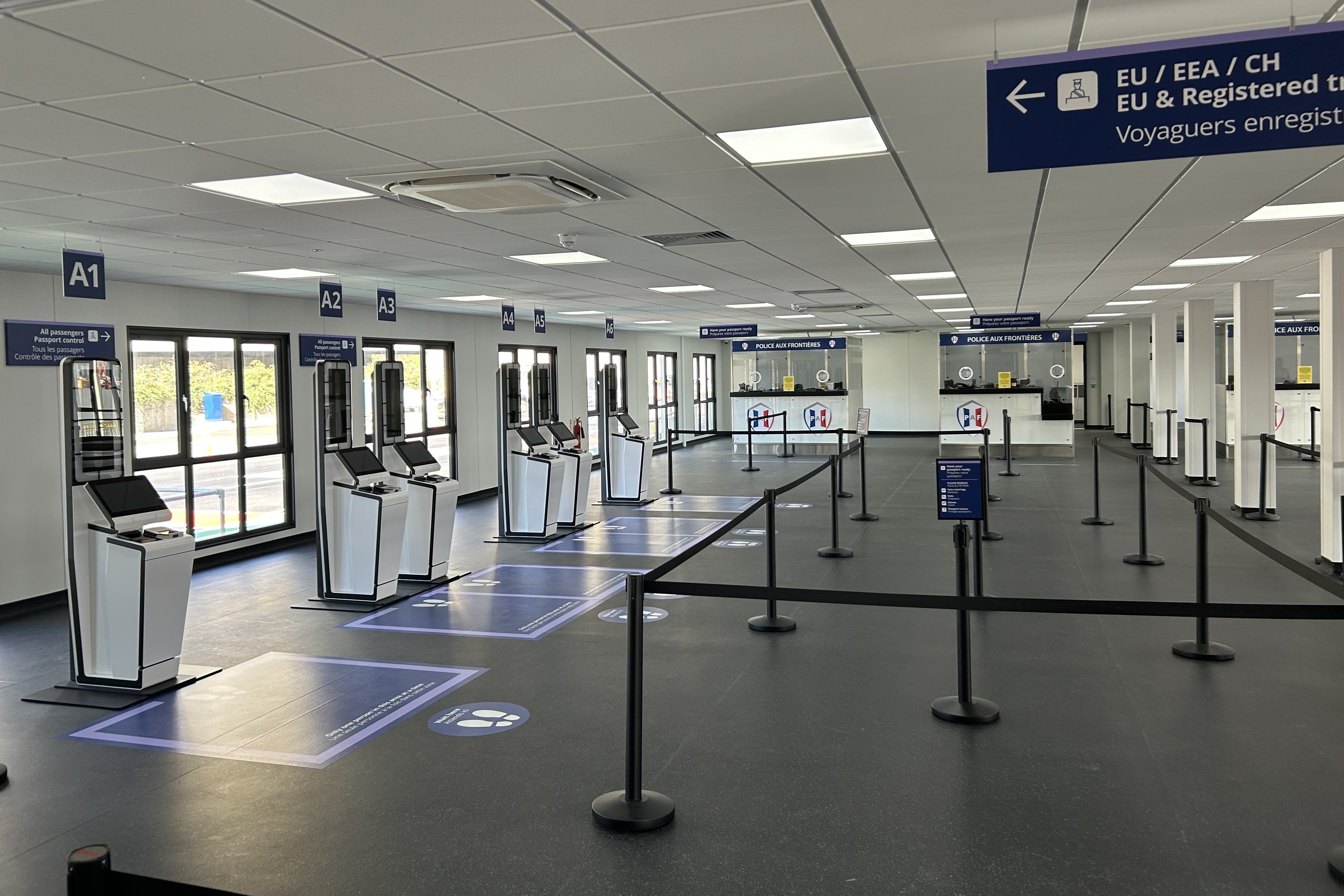UK travellers visiting countries such as Spain, Portugal and Italy are being urged to prepare for four-hour queues when a new EU border system comes into force on Sunday, while industry bodies have warned that delays could cost the economy £400m.
The Entry Exit System (EES) means UK travellers will need to have their fingerprints registered and photograph taken to enter the Schengen area, which consists of 29 European countries, mainly in the EU.
While the Home Office said the extra checks “should only take one to two minutes” for travellers to complete, they admitted they may lead to “longer waits at busy times”, with travel firms warning passengers to allow four hours for the checks to take place.
Meanwhile, there are fears longer delays for hauliers could cost the UK economy millions.

Analysis conducted by Logistics UK with independent modelling experts MDS Transmodal estimated that delays of around 90 minutes for the 3.35 million HGVs that passed through the Short Straits in 2023 would cost the economy £400m per year.
Logistics UK’s Policy Manager Josh Fenton warned: “This is a cost that the logistics industry cannot just absorb, not least because our members already operate on incredibly narrow margins and are facing rising operating costs that are putting pressure on their ability to keep trading.
“It is vital for our sector that the UK government maintains close conversation with its European counterparts to ensure that the test of Member State readiness has, at its core, the smooth flow of freight and trade across the Channel; a critical GB EU supply chain route”, he added.
Pointing to the Logistics UK figure, the Liberal Democrats urged the government to negotiate with the EU to enable pre-checks for HGVs away from the UK/EU border.
They calculated that the £400m that may be lost as a result of delays could fund more than 16,000 new nurses for the NHS.

The party’s Europe spokesperson Al Pinkerton told The Independent: “It’s utterly unacceptable that the UK could lose nearly half a billion pounds thanks to the government failing to negotiate properly with the EU over the new entry programme. This is yet another barrier to growth.
“That money could have gone back into our economy to boost struggling companies and public services here at home. Instead, it now risks being lost in long queues as the flow of trade is gummed up at the border.”
He urged ministers to “secure immediate agreements to help fast track exporters through the border”, as well as urging them to “get the EU signed up to a professional drivers’ exemption for British hauliers – ensuring our businesses don’t get hammered by new restrictive rules on working in the EU.”
It came after Tom Jenkins, chief executive of European travel association Etoa, said the phased rollout of the EES is a “complete muddle”.
The EU is rolling out the system in a phased manner, with participating states initially only required to use the system for a proportion of their arrivals. The deadline for full implementation is 10 April next year.
But Mr Jenkins said: “We’re not getting any information at all. All they [the EC and EU member states] are saying is it will be rolled out from October 12 – it’s not remotely clear who will be doing it.”
“It’s a complete muddle. They can’t have a partial system, which is what they’re trying to do – to start enrolment, to get the electronic record up even if it’s not a proper record. So, they’re going to register people as well as stamping their passport”, he added.
For most UK travellers the EES process will be done at foreign airports. UK travellers boarding international services from London’s St Pancras railway station, the Port of Dover and Eurotunnel’s Folkestone terminal will complete EES checks in the UK.
New kiosks have been installed at those locations but only some passengers will be required to use them from Sunday.
Julia Lo Bue-Said, chief executive of Advantage Travel Partnership, a network of independent travel agents, said: “For major airports in southern Europe, we recommend that travellers now allocate four hours for navigating the new system in these initial stages.”
She warned that “delays should be anticipated” at border controls when multiple flights arrive at similar times, and “we foresee potentially overwhelming volumes of travellers during the initial roll-out”.
Ms Lo Bue-Said added: “This should settle over the next few weeks as staff and travellers familiarise themselves with the new procedures.”
An individual’s EES registration will be valid for three years although their details will still be verified on each trip in that period.
The system will eventually replace the need for border officers to stamp passports.
Mark Tanzer, chief executive of travel trade organisation Abta, said: “In the longer term, EES should make processes quicker and simpler for travel to Europe.
“Looking at the short term, given the scale of the operation, there may be some delays, particularly at peak travel times.
“But countries will be stepping up their processes gradually and have the option to stand down the system to avoid significant and lengthy waiting times.
“We ask that countries remain vigilant and use this contingency measure where needed.”
The Department for Transport has been contacted for comment.






.jpg?trim=0,0,0,0&width=1200&height=800&crop=1200:800)
